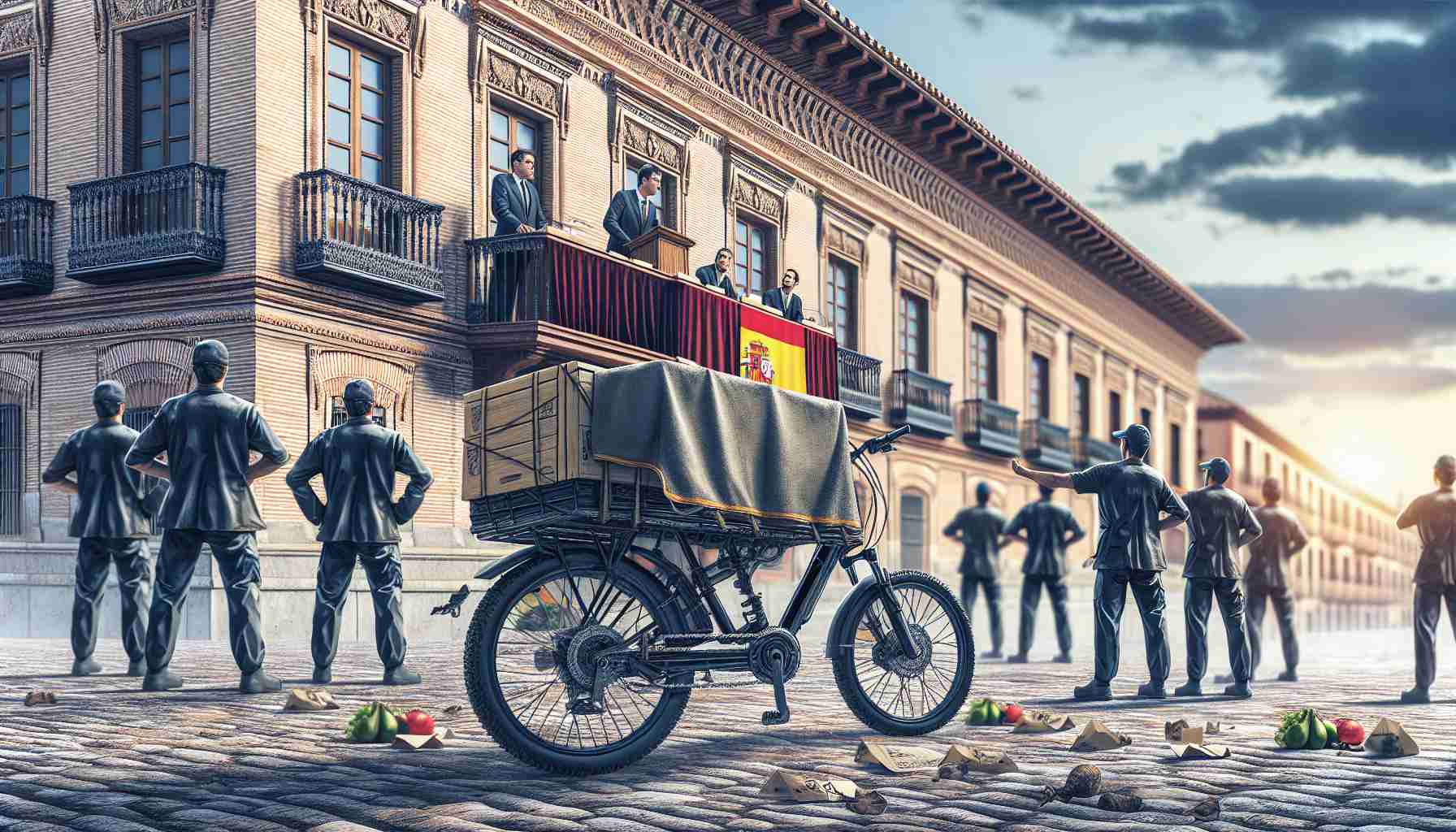A Sustainable Venture Concludes in Bankruptcy
In a surprising turn of events, Urb-it, a Swedish sustainable delivery company, is auctioning off its fleet of cargo bikes following its recent bankruptcy. The auction features 76 electric cargo bicycles, allowing both individuals and businesses the chance to bid until December 17 on the auction platform Trademat.
Founded in 2014, Urb-it entered the Spanish market in September 2022 with ambitions to reshape urban delivery using an eco-friendly fleet managed by its own couriers. Unfortunately, the startup struggled to find its footing in a fiercely competitive market, leading to its rapid downfall just a year later. Prior to its closure, the company also halted its listing on Nasdaq and was subsequently acquired by the British firm Fin Sustainable Logistics.
The auction includes a variety of models, such as twelve Radkutsche Musketier tricycles and sixty BKL eCargo Trike Box, each sold individually. This liquidation is part of a broader trend, as Spain has seen a dramatic increase in insolvency filings, with 27,730 applications recorded in the first nine months of 2024—a staggering 86.3% rise from the previous year.
This case highlights the challenges faced by sustainable businesses in Spain, amidst a climate of economic uncertainty and rising competition. The auction managed by Trademat, a specialist in asset sales during liquidation processes, marks the end of Urb-it’s brief existence as a pioneer of eco-friendly deliveries in the country.
Urb-it’s Bankruptcy: Insights into the Future of Sustainable Delivery Services
A Sustainable Venture Concludes in Bankruptcy
The recent bankruptcy of Urb-it, a Swedish sustainable delivery company, has raised eyebrows within the eco-friendly logistics industry. As the company auctions off its 76 electric cargo bicycles, it sheds light on the increasing challenges that sustainable businesses face in modern urban logistics.
Market Analysis: Challenges Faced by Sustainable Delivery Services
Founded in 2014 and launched in Spain in September 2022, Urb-it aimed to revolutionize urban delivery with an eco-conscious fleet. However, the competitive landscape in the delivery sector proved daunting, leading to its swift downfall within just a year of its expansion into the Spanish market. Similar ventures have struggled, pointing to a broader market trend where the eco-delivery niche is becoming increasingly crowded and commercially difficult to navigate.
Recent figures indicate a worrying trend in Spain’s economic climate, illustrated by a staggering 86.3% increase in insolvency filings, with 27,730 applications recorded in the first nine months of 2024 alone. This situation underscores the difficulty that even innovative companies face in achieving profitability and sustainability.
Pros and Cons of Sustainable Delivery Models
Pros:
– Environmental Benefits: Eco-friendly delivery services lower carbon footprints by utilizing electric vehicles and sustainable practices.
– Increased Demand: With the rise in e-commerce, there remains a demand for delivery services, particularly those aligned with sustainable values.
Cons:
– High Operating Costs: The upfront investment in technology and sustainable fleets can be prohibitive.
– Market Competition: The influx of competitors in the eco-initiatives space can dilute market presence and profitability.
Innovations and Future Predictions
Despite the hurdles demonstrated by Urb-it, the future of sustainable delivery services may still hold promise. Innovations in logistics technology, such as optimized route planning and advanced telematics, can help companies decrease operational costs and improve efficiency. Experts speculate that as consumer awareness of sustainability increases, businesses that adapt and innovate will find success.
Use Cases: Potential Success Stories in Eco-Friendly Logistics
Some companies, despite Urb-it’s unfortunate exit, are finding success in sustainable logistics by focusing on specific niches or geographic regions. For example:
– Localization: Businesses that concentrate on hyper-local deliveries are experiencing growth, as they can leverage community ties while reducing operational expenses.
– Partnerships: Collaborating with established logistics firms can provide essential support and resources to sustain eco-friendly delivery initiatives.
Sustainability in Logistics: A Necessary Shift
The challenges faced by Urb-it amplify the urgent need for the logistics sector to transition to more sustainable practices. As cities grow and consumer demand for rapid delivery increases, integrating sustainable solutions will not only be a value-add but a necessity for competitive advantage.
In conclusion, the auction of Urb-it’s cargo bikes symbolizes more than just the failure of one company; it reflects a critical turning point for the sustainable logistics industry. While challenges abound, ongoing innovation and strategic adaptations will be crucial in determining the future of delivery services that prioritize environmental responsibility.
For more insights into sustainable logistics and business trends, visit Trademat.







